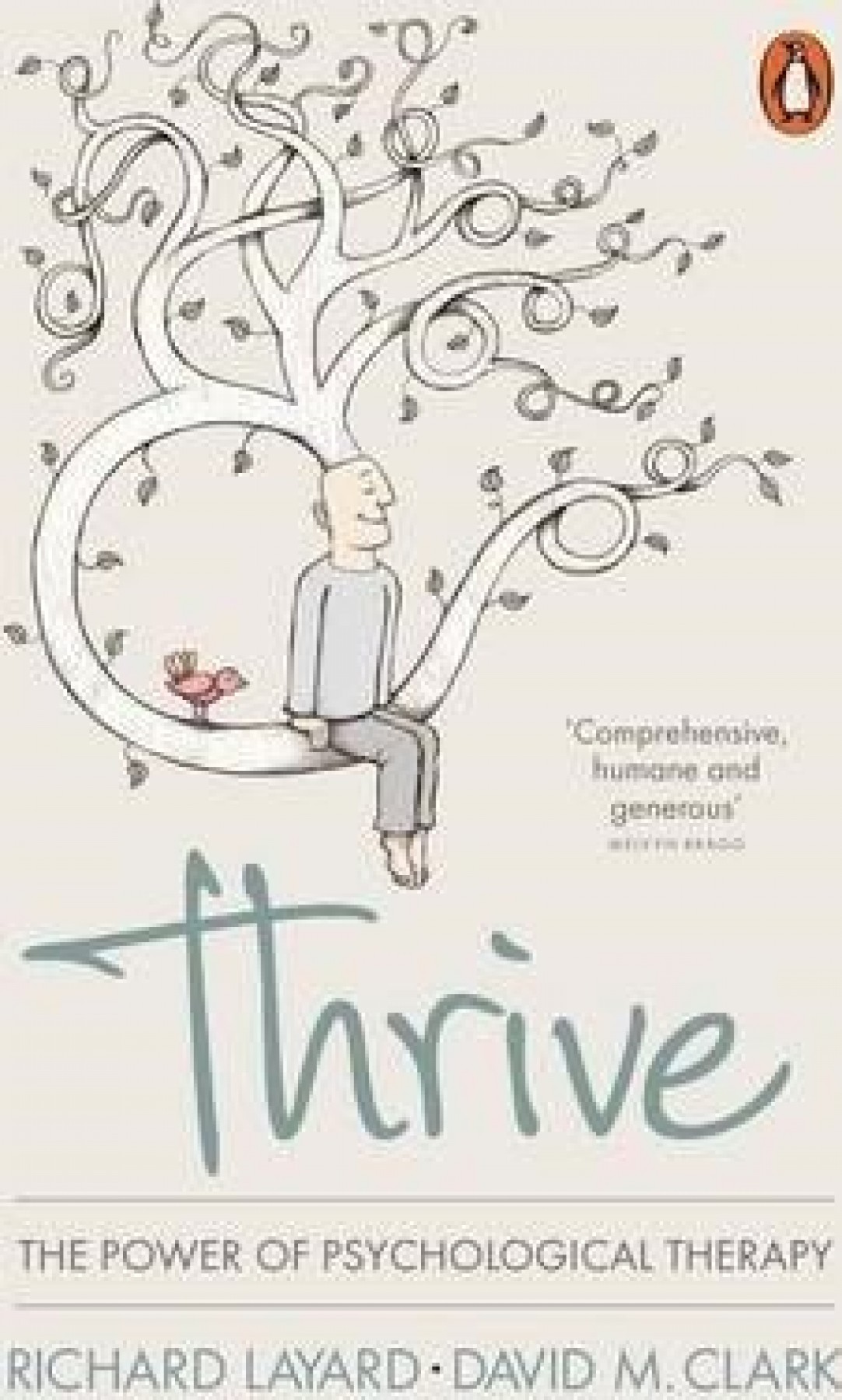When I heard Richard Layard (aka Professor Lord Layard) had written another book after his 2005 game-changer Happiness: Lessons from a new science, I was understandably eager to learn what would be the new leading edge of thought around mental health and wellbeing from one of the world’s eminent experts.
Layard, a labour economist by trade, has for the last 10 years teamed up with David Clark, a clinical psychologist from Oxford, to form the "dream team of British social science" according to Martin Seligman. They have effectively lobbied the British government to implement what has become the Improving Access to Psychological Therapies (IAPT) programme, which the book describes in detail.
The central thesis of the book is both compellingly simple and extraordinarily powerful: Too many people suffer from entirely treatable mental illnesses and there is no reason why this injustice cannot be remedied. Layard and Clark point out that the overwhelming majority of people with physical illness receive high quality treatment, and yet comparatively few sufferers of mental illness do. While 90% of diabetes sufferers receive treatment for their condition, under a third of all adults with diagnosable mental illness do. Worst of all, mental ill-health causes more of the suffering in our society than physical illness, poverty or unemployment. The authors then set out the science supporting the effectiveness of evidenced-based, modern day talking therapies, like Cognitive Behavioural Therapy (CBT) and others, and to my view argue successfully that access to gold standard therapy should be a citizen’s guaranteed right.
While the comparison to physical treatment standards should be enough to convince most people that access to mental illness treatment should be made more easily available, the authors use their expertise to build a compelling case based on rational economics as well. The cost of delivering a course of gold standard psychological therapy (usually about 10 sessions) is more than made-up for in recouped public welfare and health costs: Pay for psychological therapy with public money and it will cost you nothing in the long run because of the savings in associated physical healthcare alone. Additionally, Layard and Clark speak to the tremendous quality of life improvements and subsequent return to society of citizens more able to contribute fully to the economic system. While Thrive does not dwell for long on a hard economic argument, it is made well for the penny-pinchers in the readership.
The key message of Thrive is for parity of treatment for people who are physically and mentally ill. Layard and Clark suggest society will reflect back in 25 years’ time and marvel that it took us so long to widely introduce easy access to such good quality, scientifically validated therapies. The book does a very good job of interspersing short excerpts from letters written directly to Lord Layard describing not only the acute suffering of those who have experienced anxiety, depression, and other illnesses, but also of the life-changing turn-arounds that CBT and other therapies gave those who had felt there was previously no hope.
Thrive argues for nothing less than a revolution in our attitudes towards treating mental illness, and offers an alternative to the current system to make the world a happier and mentally healthier place.
Reviewed by Carsten Grimm, mental health promoter with the Mental Health Foundation
I Need Help Now
Help for you or someone important to you
More

